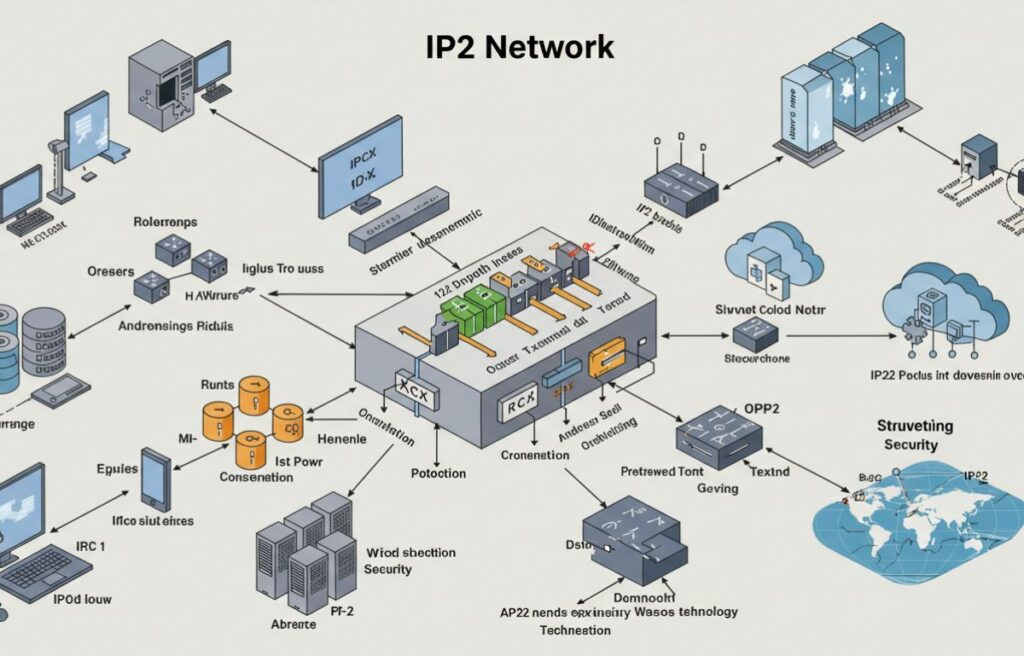The IP2 Network is an emerging concept in digital networking infrastructure that has sparked interest in both technical and non-technical communities. Built to enhance internet performance, security, and transparency, the IP2 Network plays a significant role in how data is transferred, monitored, and protected across online environments. Whether you’re a tech enthusiast, developer, or digital entrepreneur, understanding the IP2 Network is essential in today’s data-driven world.
What Is the IP2 Network?
At its core, the IP2 Network is a decentralized network infrastructure designed to support real-time communication, IP tracking, and geolocation services. It serves as a platform for identifying and managing IP addresses while ensuring that such activities adhere to privacy standards and digital rights.
The IP2 Network operates across various applications—from cybersecurity protocols to digital marketing analytics and even legal investigations. By leveraging robust data systems and intelligent routing, the network provides accurate, fast, and reliable IP address information to its users.
Key Components of the IP2 Network
1. IP Address Management
One of the primary functions of the Network is IP address management. It enables the identification and classification of IP addresses into geographic locations, ownership details, and usage type. This process is essential for organizations that rely on precise geolocation data, such as:
-
Digital marketing firms
-
E-commerce platforms
-
Government surveillance agencies
-
Content delivery networks (CDNs)
2. Geolocation Services
The IP2 Network is especially valued for its real-time geolocation capabilities. Using a massive, constantly updated database, it can determine the geographic origin of an IP address within seconds. These services are useful in areas like fraud prevention, online gaming matchmaking, and personalized content delivery.
3. Security Infrastructure
Security is a major pillar of the IP2 Network. It helps identify malicious IP addresses, flag potential cyber threats, and prevent unauthorized access to sensitive digital environments. Security-focused platforms often integrate with the IP2 Network to enhance their real-time threat detection systems.
How the IP2 Network Works
The IP2 Network combines traditional IP lookup technology with advanced data analytics, machine learning, and decentralized networking principles. It collects and processes IP address data from numerous global sources, verifies its accuracy, and makes it accessible via APIs or proprietary software platforms.
Here’s a simplified breakdown of how it functions:
-
Data Collection: IP data is gathered from public registries, ISPs, and user interactions.
-
Validation: Information is validated against multiple sources to ensure accuracy.
-
Classification: IPs are categorized based on geography, ISP, device type, and more.
-
API Integration: End users access this data through software platforms or custom APIs.
Real-World Applications of the IP2 Network
Cybersecurity and Fraud Detection
By identifying suspicious IP activity, the IP2 Network helps organizations protect themselves from cyber threats. For instance, if login attempts originate from high-risk IPs known for phishing, the system can trigger additional authentication protocols.
Digital Marketing and Targeted Ads
Marketers use IP2 Network geolocation tools to create hyper-targeted advertising campaigns. By understanding where users are located, businesses can personalize ads, content, and product offerings for maximum engagement.
Content Regulation and Licensing
Streaming platforms rely on the IP2 Network to restrict or allow content access based on user location. This ensures they comply with international licensing laws and copyright restrictions.
Law Enforcement and Investigation
Governments and law enforcement agencies often use the Network to track down criminal activities online. Accurate IP data is instrumental in tracing the origin of cybercrimes, online harassment, and data breaches.
Advantages of the IP2 Network
A. Enhanced Accuracy
With its comprehensive data sets and frequent updates, the Network offers high accuracy in IP-to-location mapping.
Scalability
Whether for small businesses or large corporations, the Network can handle massive amounts of data without performance degradation.
Privacy-Centric Approach
Despite its powerful tracking capabilities, the Network supports GDPR and other privacy laws, ensuring user rights are respected.
Fast Response Time
Real-time data processing makes the Network a valuable asset in time-sensitive applications such as fraud detection or emergency response.
Challenges and Limitations of the IP2 Network
Data Privacy Concerns
Although the Network adheres to privacy standards, the mere collection of IP data can raise concerns among privacy advocates. Transparency in data usage remains critical.
Evasion by Advanced Threats
Sophisticated hackers often use VPNs and proxy servers to disguise their IPs, making it challenging for the Network to identify their true location.
Dependence on Data Sources
The effectiveness of the Network depends on the quality of its data sources. Inaccurate or outdated data can impact the credibility of its outputs.
IP2 Network vs Traditional IP Lookup Tools
Traditional IP lookup tools are often limited in functionality and scale. They might offer static geolocation data or simplified results. In contrast, the Network offers:
-
Dynamic and real-time data
-
Detailed insights (e.g., ISP, domain type, anonymizers)
-
Broader integration options via APIs
-
Better support for privacy and compliance needs
These distinctions make the IP2 a more versatile and future-ready option for businesses and developers.
The Future of the IP2 Network
As the digital landscape evolves, the IP2 is expected to integrate with other technologies like blockchain, AI-driven analytics, and edge computing. These integrations will improve the network’s efficiency, broaden its applications, and make it even more essential in a world that’s becoming increasingly reliant on data integrity and real-time communication.
Additionally, future iterations of the IP2 may feature more user-focused dashboards, predictive analytics, and customizable data filters, opening doors to non-technical users as well.
Conclusion
The IP2 Network represents a significant advancement in how IP address data is collected, managed, and utilized. From strengthening cybersecurity to enabling smarter marketing strategies, the applications are vast and impactful. Despite challenges in data privacy and source reliability, the IP2 stands out as a robust, scalable, and privacy-conscious solution in today’s digital infrastructure.
As we move forward into an even more connected world, understanding tools like the IP2 is not just helpful—it’s essential for anyone operating in the digital domain.







